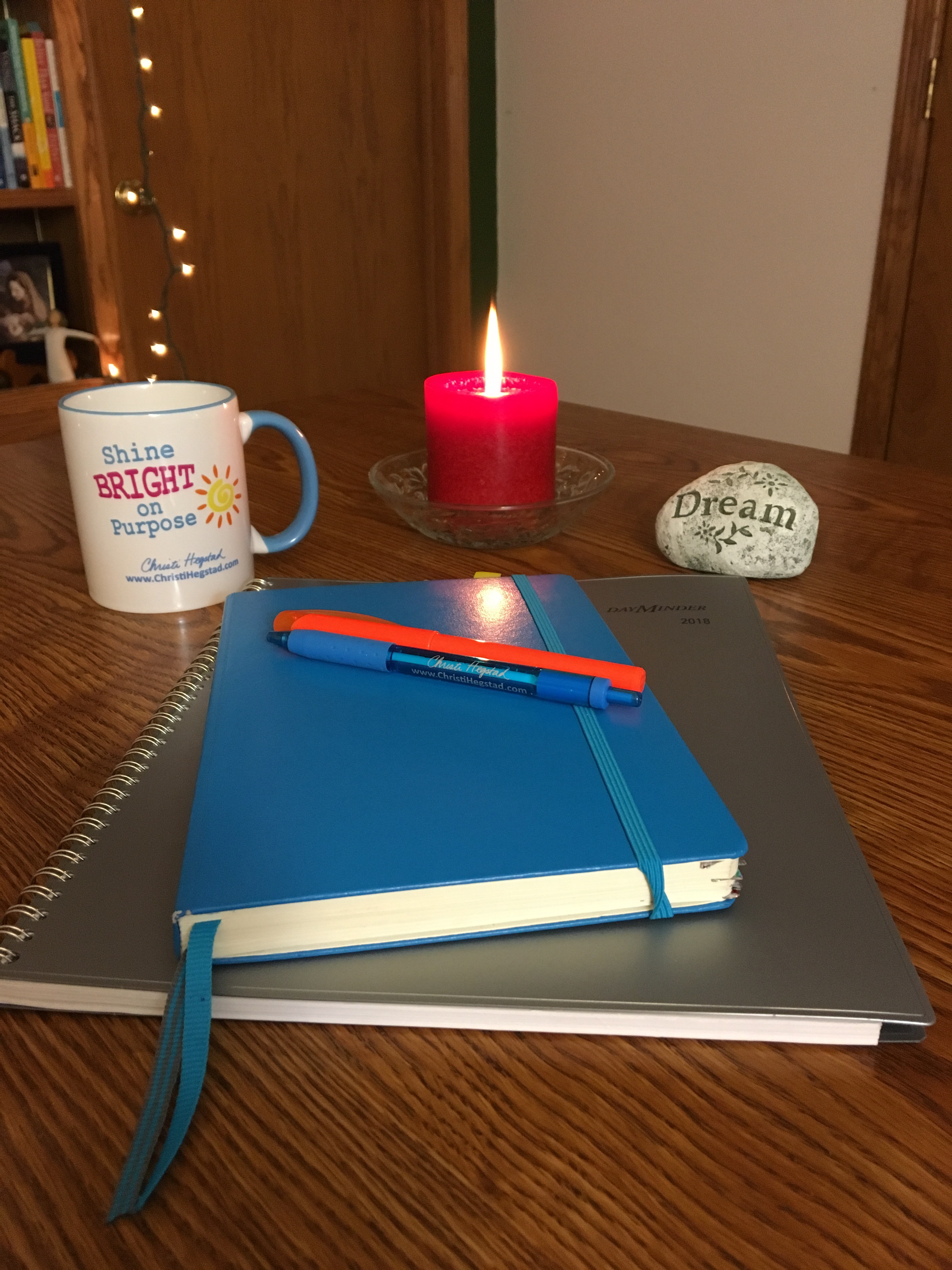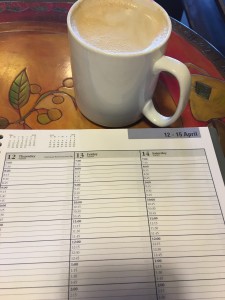
Imagine you have an upcoming interview for your dream job, or a meeting with a prospective client who could put your business on the map, or an important presentation that – if done well – could set your highest vision in motion. What would you do in the time leading up to this experience? How would you ensure success and calm your nerves?
If you’re like many of my clients, one word comes to mind: PREPARE.
Yet how often do you ‘wing it’ rather than prepare for your upcoming week? How thoughtfully do you plan for the next seven days – days that could catapult your goals forward, change some lives, and make a meaningful difference in the world?
Every time I post on Instagram about my Weekly Review + Planning Session (which I’ll shorten to R+P for the remainder of this article), I receive a number of questions: How? When? What, exactly, do you do?
Today I will share the basic components of my R+P, something I’ve been doing for so long I can’t remember not doing it. Even if you take pride in flying by the seat of your pants, I encourage you to give the R+P a try. You may be successful now, but with a bit of reflection and thoughtful planning – even just 10-15 minutes’ worth – you can elevate yourself to new heights! You can also conduct a similar session with your assistant, team, or others connected to common goals and priorities.
How To Conduct A Purposeful R+P
1. Select The Day
As with most purposeful habits, engaging on a regular basis – ideally at a similar time each day or week – goes a long way toward ensuring you actually follow through. Choose a day you can keep fairly consistent. I typically conduct my R+P session on Sunday evenings; many of my clients choose to close out the work-week with their R+P and do them on Friday afternoons. Block the time (anywhere from 15 to 60 minutes will suffice) in your calendar. Bonus points: use bright, fun colors for this time block!
While the day of the week doesn’t matter as much as the consistency, I do not recommend scheduling your R+P sessions for Monday morning. Not only does Monday morning often tend to bring a high level of busy-ness on its own, it can also feel much like setting your resolutions on January 2 – you start off a bit behind.

2. Gather Your Supplies
Nothing too complex here. Some of my necessities include:
* 5-Point Scan – A one-page document that includes my Vision, Purpose Statement, Guiding Principles, Values, and 3 Bold Goals for the year.
* Success Calendar – This is part of the Purpose Planner system; if you don’t utilize that, a year-at-a-glance calendar with space to plan monthly and quarterly milestones will serve a similar purpose.
* Current Calendar/Planner – One with details for the upcoming week.
* Journals + Pens – I plan/track/dream a great deal in my journal (especially my bullet journal), so I find this useful. If you do something similar on your laptop, turn off notifications or shut down the internet to avoid any unnecessary rabbit holes.
* “Ceremony” Items – Why not make the time a bit special? A fresh cup of coffee or glass of iced tea, a scented candle, colored markers and highlighters…add a bit of splash to your R+P to make it even more enticing.
3. Secure A Quiet Location
Your sunroom, back porch, coffee shop, writing nook, picnic table by the lake…select an area that will give you focused space to think, envision, and plan. Your office may work too, but don’t underestimate the power of a periodic change in scenery for prompting fresh thoughts.

4. Review The Past Week
My coaching clients often send a Coaching Prep Form prior to our meetings, allowing them to recap key actions and results since our previous meeting. Not a week goes by without someone telling me, “Completing this form reminded me of all that I did and even prompted more action!” Review what will best help you grow: Wins you experienced, lessons learned/things you’d do differently next time, gratitude, unexpected highlights, courageous moments.
Look also at where you invested your time. Was 80% of your week spent in meetings, for example? Could some of those meetings be turned into quick phone calls, walkable meetings, or deleted altogether? Whether you suffer from meeting fatigue or other less-than-useful time expenditures, pay attention and make changes where necessary.
5. Plan For Next Week
This could easily be an entire article on its own (future note to self), but a couple of important items:
* Know your priorities, or what Stephen Covey might refer to as ‘big rocks,’ and schedule those first. Don’t leave the most important things to chance or “if you have time.” You won’t, unless you schedule them now.
* Make sure you have dedicated time for 1-3 of your most important goals – or what we call Bold Goals in my world.
* Consider color coding your entries for a quick balance check. If you notice 90% of your week is in blue (work) and only 10% in orange (family, personal time, exercise + hobbies), decide if and how you can amend.
 That’s it!
That’s it!
Eisenhower apparently once said, “Plans are useless, but planning is indispensable.” Your week may not (or more likely, will not) go exactly according to plan. But the fact that you have created a plan will do three important things:
1) Provide a level of confidence knowing that you’ve thought through the week ahead;
2) Allow you to see what’s working, what’s not, and what changes will best support your growth; and
3) Calm the chatter in your mind that wants you to worry, prioritize unimportant things, or always feel just a couple of steps behind the starting line.
You will experience greater meaning at work and purpose in life when you take a few moments to create a thoughtful, goal-oriented plan for success – however you define success. When will you conduct your next (or perhaps first) R+P session? Let me know below or on Instagram, Facebook, or Twitter – and I’d love to hear how it goes!





